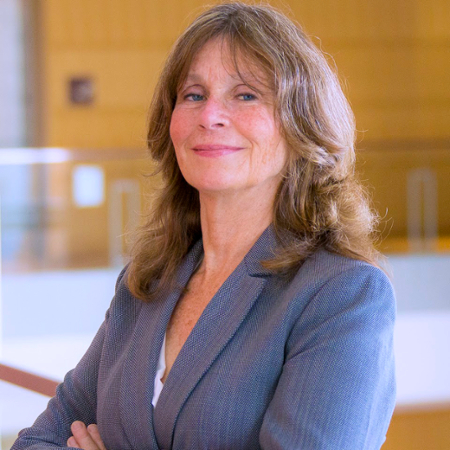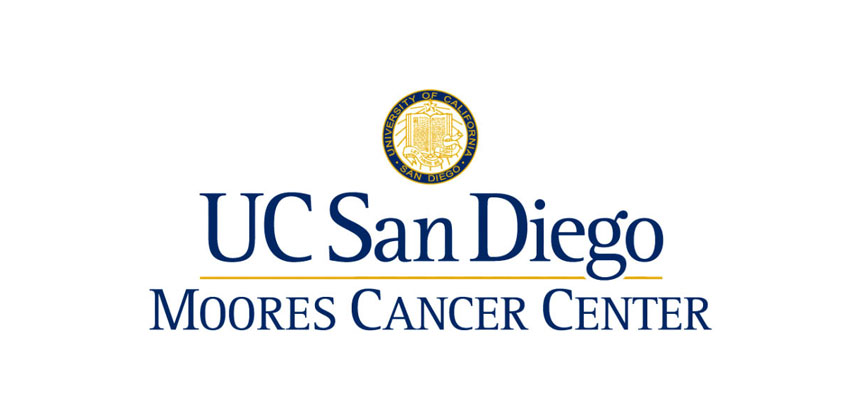Judith Varner, PhD
Founder, Organizer
Dr. Judith A. Varner is a prominent cancer researcher specializing in the role of inflammation within the tumor microenvironment. She serves as a Professor in the Departments of Pathology and Medicine at the University of California, San Diego (UCSD) and is the Director of Faculty Mentoring for the Department of Pathology. Additionally, Dr. Varner co-leads the Solid Tumor Therapeutics Program at UCSD's Moores Cancer Center.
Dr. Varner earned her undergraduate degree in Chemistry from Duke University, where she was both an A.B. Duke and National Merit Scholar. She completed her Ph.D. in Biochemistry at the University of Basel in Switzerland as a Fulbright Fellow. Following her doctoral studies, she conducted postdoctoral research in the Department of Pharmacology at the University of North Carolina at Chapel Hill, focusing on integrin signaling in cancer.
Since joining UCSD in 1997, Dr. Varner's research has concentrated on understanding how macrophages promote tumor growth. Her work has led to the development of novel therapeutic approaches targeting macrophage signal transduction pathways, particularly through the inhibition of PI3Kinase gamma. This research contributed to the development of the therapeutic agent eganelisib (IPI-549), which is currently undergoing Phase II clinical trials as an immuno-oncology treatment.
Dr. Varner has received several prestigious awards, including the V Foundation Award for Translational Research, the AACR-Landon Foundation Innovator Award for International Collaboration, and the Lustgarten Foundation Innovator Award for Pancreatic Cancer Research. She is also the founder of The Myeloid Network, a monthly international seminar series aimed at connecting researchers worldwide to advance the field of myeloid cell biology.
Beyond her research, Dr. Varner is committed to mentoring and promoting equity and diversity within the scientific community. She has held leadership roles in various committees at UCSD, including the Academic Senate Committee on Diversity and Equity and the Chancellor’s Advisory Committee on the Status of Women.
Publications
Dr. Judith A. Varner has made significant contributions to cancer research, particularly in understanding the role of macrophages and integrins in tumor progression. Here are four of her notable publications:
"Receptor tyrosine kinases and TLR/IL1Rs unexpectedly activate myeloid cell PI3Kγ, a single convergent point promoting tumor inflammation and progression" (2011): This study uncovers a shared pathway through which receptor tyrosine kinases and Toll-like/IL-1 receptors activate PI3Kγ in myeloid cells, leading to tumor inflammation and growth.
"Integrin α4β1 promotes monocyte trafficking and angiogenesis in tumors" (2006): This research demonstrates how the integrin α4β1 facilitates the movement of monocytes into tumors and supports the formation of new blood vessels, contributing to tumor development.
"Myeloid cell trafficking and tumor angiogenesis" (2006): This review discusses the mechanisms by which myeloid cells are recruited to tumors and their role in promoting angiogenesis, highlighting potential therapeutic targets.
"The sticky truth about angiogenesis and thrombospondins" (2006): This article explores the role of thrombospondins in regulating angiogenesis and their implications in cancer therapy.
These publications highlight Dr. Varner's focus on the tumor microenvironment and the development of novel therapeutic strategies targeting tumor-associated macrophages and integrins.
Education
Dr. Judith A. Varner has an extensive educational background in chemistry and biochemistry. She earned her undergraduate degree in Chemistry from Duke University in 1980, where she was an A.B. Duke and National Merit Scholar. She then pursued her Ph.D. in Biochemistry at the University of Basel in Switzerland, completing it in 1988 as a Fulbright Fellow. Following her doctoral studies, Dr. Varner conducted postdoctoral research in Immunology at the University of South Florida until 1990, and in Cancer Biology/Pharmacology at the University of North Carolina at Chapel Hill until 1993.
Professional Activities
Dr. Judith A. Varner is a distinguished cancer researcher specializing in the role of inflammation within the tumor microenvironment. She holds professorships in the Departments of Pathology and Medicine at the University of California, San Diego (UCSD). At UCSD, she has served as the Director of Faculty Mentoring for the Department of Pathology and co-leads the Solid Tumor Therapeutics Program at the Moores Cancer Center.
In addition to her academic roles, Dr. Varner is the founder of The Myeloid Network, an international organization dedicated to the study of myeloid cell biology and therapeutics. She is also the co-founder of Argent Therapeutics, a biotechnology company focused on immunotherapy and oncology.
Dr. Varner's research has significantly advanced the understanding of how macrophages promote tumor growth. Her work has led to the development of novel therapeutic approaches targeting macrophage signal transduction pathways, particularly through the inhibition of PI3Kinase gamma. This research contributed to the development of the therapeutic agent eganelisib (IPI-549), which is currently undergoing Phase II and III clinical trials as an immuno-oncology treatment.
Throughout her career, Dr. Varner has been recognized with several prestigious awards, including the V Foundation Award for Translational Research, the AACR-Landon Foundation Innovator Award for International Collaboration, and the Lustgarten Foundation Innovator Award for Pancreatic Cancer Research.
Beyond her research, Dr. Varner is committed to mentoring and promoting equity and diversity within the scientific community. She has held leadership roles in various committees at UCSD, including the Academic Senate Committee on Diversity and Equity and the Chancellor’s Advisory Committee on the Status of Women.
Dr. Varner's professional activities reflect her dedication to advancing cancer research, fostering collaboration, and supporting the development of early-career scientists in the field.


